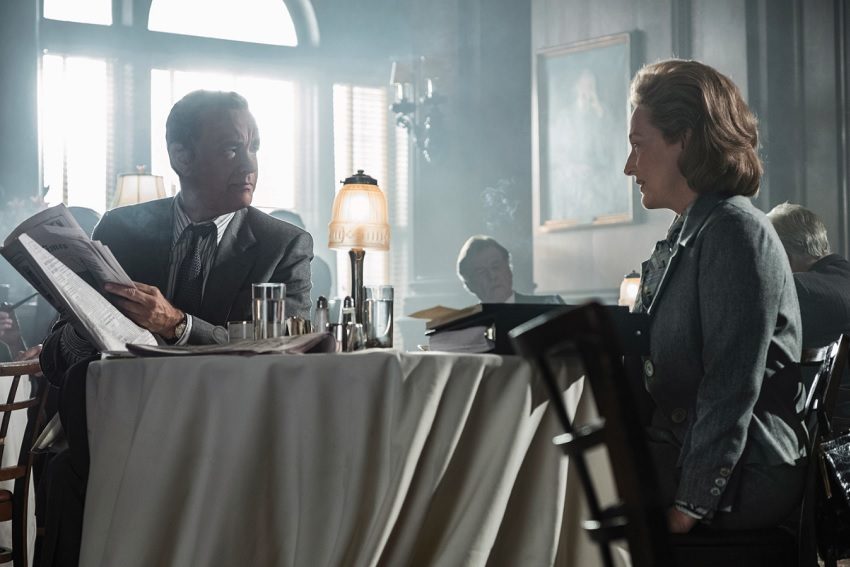Film Review: The Post

Steven Spielberg’s reportedly rushed latest looks a little shaky at first but quickly becomes a powerful and suspenseful drama, whether you know the somewhat guessable outcome or not.
Featuring excellent, restrained playing by Meryl Streep, Tom Hanks and a small army of familiar players, it’s one of Speilberg’s explicitly political films, along with Munich, Lincoln and Bridge Of Spies. It’s obviously intended as not just a historical document but a film about right damn now.
After a vaguely awkward opening sequence set in Vietnam in 1966 (with the anachronistic use of Creedence Clearwater Revival’s Green River on the soundtrack), we watch as the quietly shell-shocked Daniel Ellsberg (Matthew Rhys) smuggles, with amazing ease, thousands of top-secret files from the Ministry of Defence in 1971. The most damaging of the revelations in the ‘Pentagon Papers’ are then shown in a cool montage, with the history of US involvement in Vietnam chronicled from 1945 to 1967 and umpteen confirmations that President after President has been lying, with the pre-Watergate Nixon only the latest.
Some of the scathing facts are printed in The New York Times but then a court order prevents them featuring any more. A shoebox full of photocopies does find its way to The Washington Post though, depicted in all its lo-fi, typewriter-intensive, blessedly-computer-free glory. Publisher Kay Graham (Meryl), trying to do the best she can as she’s sneered at by roomfuls of grim guys in dark suits, finds herself caught up when editor Ben Bradlee (Hanks) prints some of the Papers’ key facts and plans to continue, no matter what the men upstairs or beyond say.
Much welcome scope is also given to Bradlee’s offsider Ben Bagdikian (Bob Odenkirk), who brings a nice riff of character comedy to the tense proceedings and is the first to properly warn Dan that he could go to jail. Yet just about the entire staff of the Post could have been locked up for what they do here, as they went against a government that, for apparently the first time ever, was trying to stop and silence the free press. Of course, it wouldn’t be the last time.
Convincingly ‘70s-looking, with lots of inappropriate smoking, primitive technology, muddy colours and casual sexism, this has very strong work from Streep and Hanks alongside a large cast, many of whom (Odenkirk, Sarah Paulson, Carrie Coon, David Cross, Jesse Plemons, Alison Brie and others) are best-known for their TV roles and might have been selected partially because they can work fast. You do have to wonder if somehow Spielberg couldn’t raise the cash to have a longer, less panicked production because studios and investors thought this one was too obviously a pointed commentary on the here and now, rather than a study of 1971.
Rated M. The Post is in cinemas now.